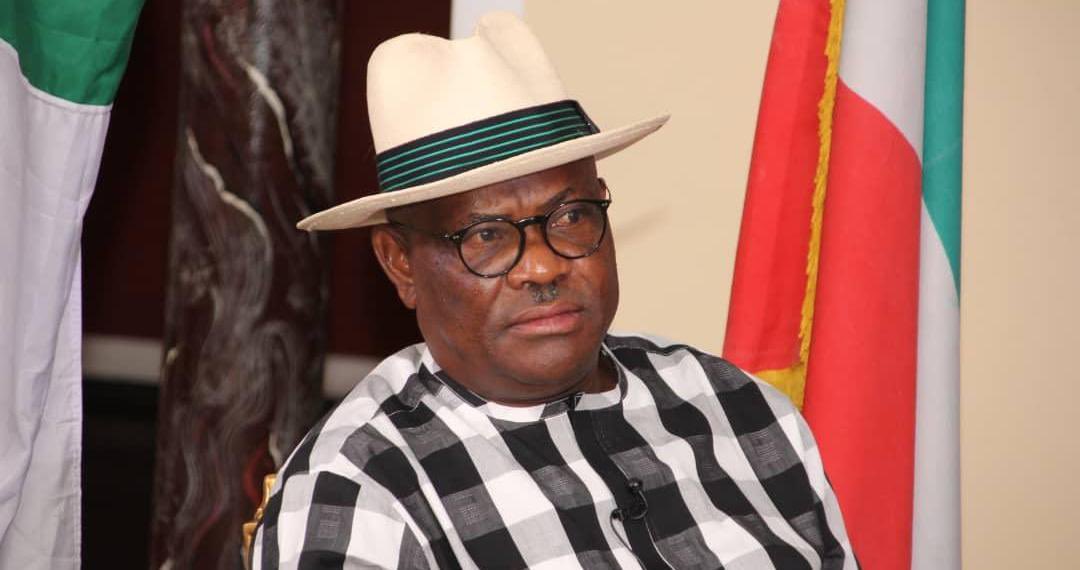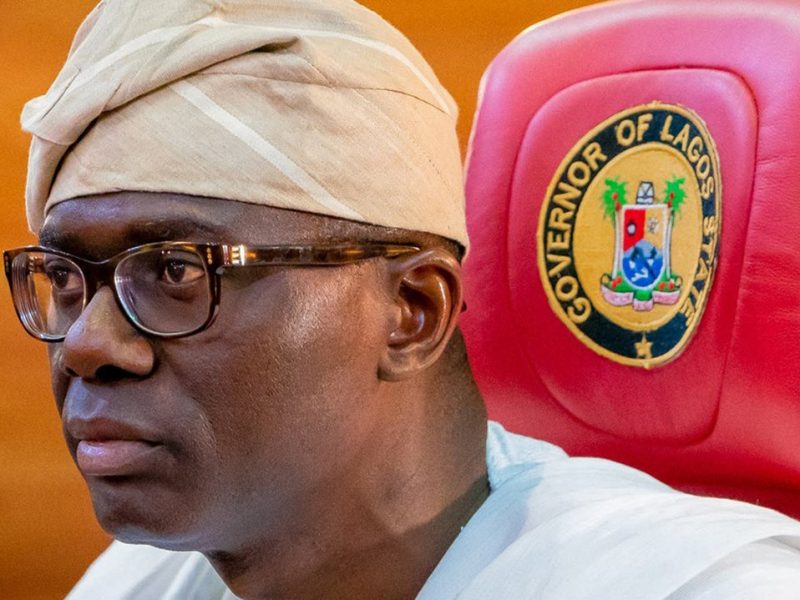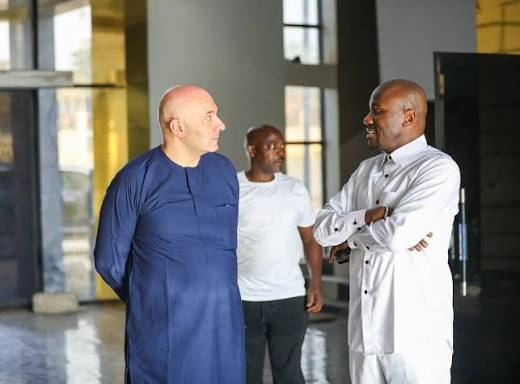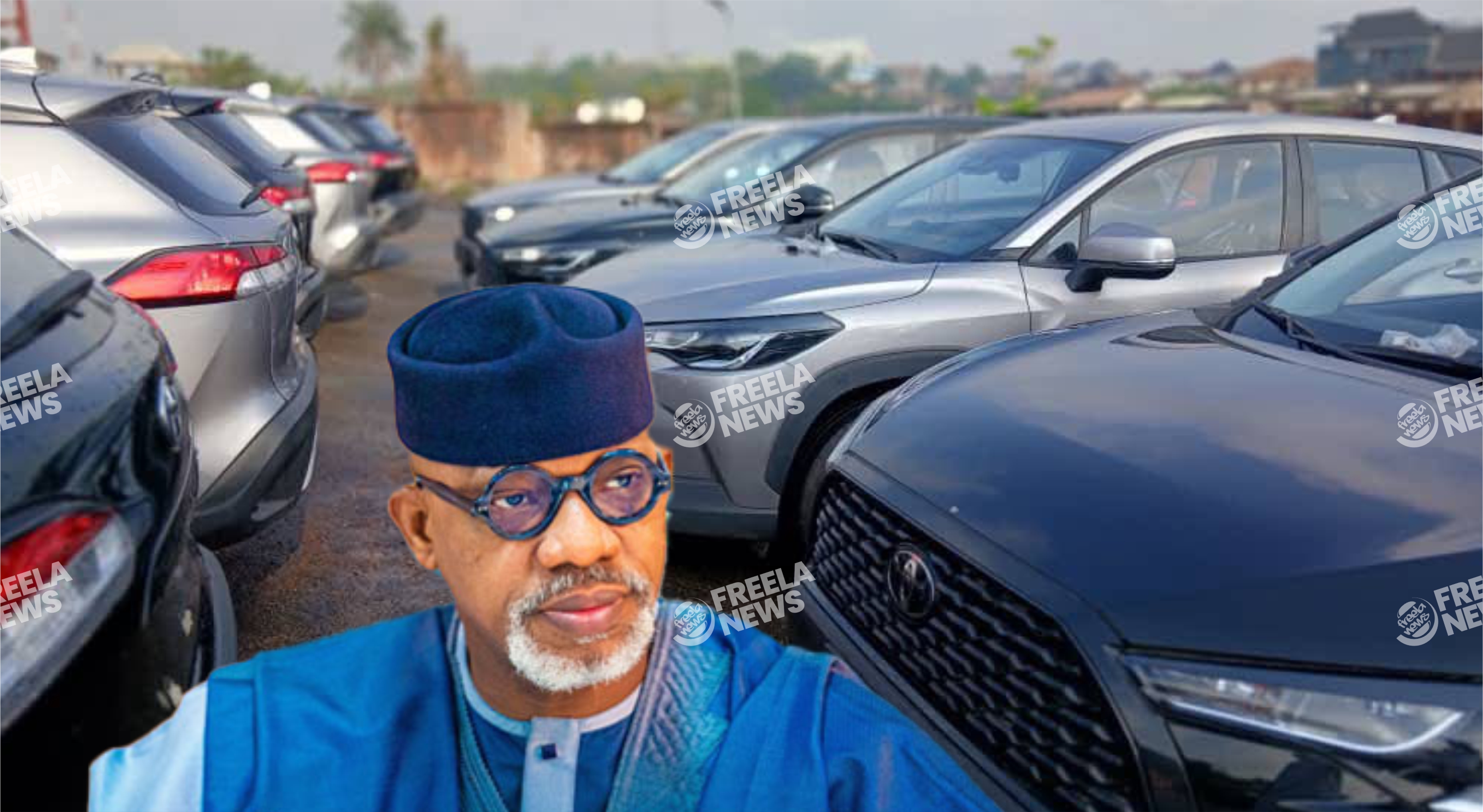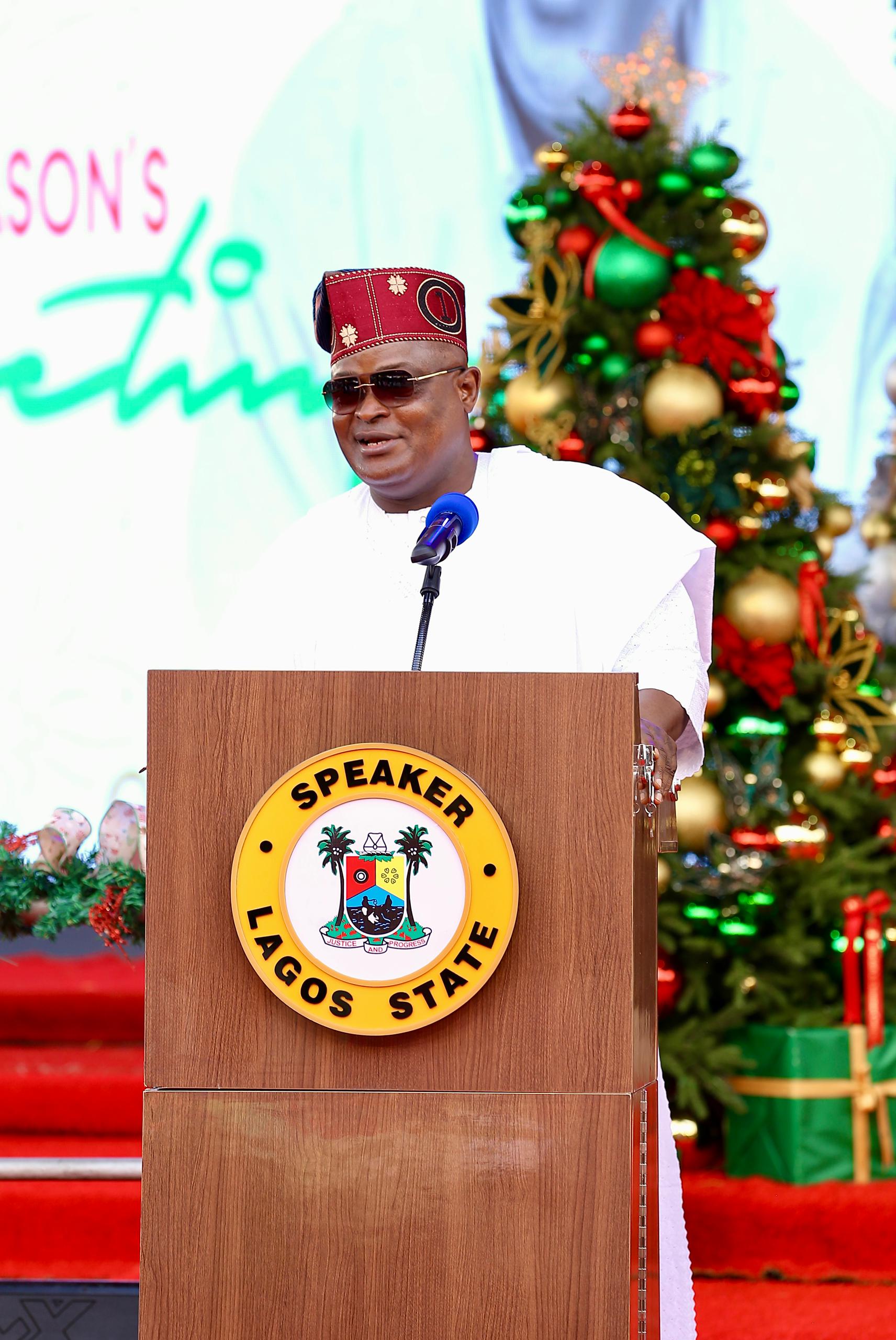A petrol tanker crash and ensuing chaos on the Lagos-Ibadan Expressway highlighted severe government failure in emergency response and prolonged infrastructure neglect, causing immense public distress
[dropcap]L[/dropcap]agos-Ibadan Expressway chaos dramatically exposed the Nigerian government’s consistent failure in managing fundamental aspects of national life, particularly highway emergencies.
Also read: Trailer accident causes gridlock on Lagos-Ibadan Expressway outward bound
On Wednesday, a petrol tanker crashed and incinerated along with other vehicles on this vital highway, starkly revealing the government’s ineptitude and the dire consequences of neglect.
It remains indefensible that, twenty four hours after the incident, the Federal Government, Ogun State Government, the police, and the Federal Road Safety Corps (FRSC) allowed Nigeria’s busiest highway to remain engulfed in widespread chaos, severe gridlock, carnage, and immense public distress.
There was no hint of the impending chaos on the eve of ‘Democracy Day’. As the day progressed, a series of compounding events unfolded.
First, a trailer collided with a bus at KM44. Simultaneously, at the Ogere Interchange, two separate auto accidents occurred on both sides of the expressway. Both incidents triggered massive chaos that persisted deep into the night.
All this was further compounded by a petrol tanker that crashed at the NASFAT Camp area on the outward lane heading to Ibadan.
The ensuing fire raged uncontrollably, incinerating several other vehicles. The widespread wreckage caused massive gridlock on both sides of the expressway, and two people reportedly died in the inferno.
As of Thursday afternoon, the expressway remained at a complete standstill. Law and order quickly disintegrated, exacerbated by the glaring absence of law enforcement agents and the irresponsible motorists who drove against the traffic from Berger to NASFAT.
Many people endured overnight stays on the highway or sought refuge in nearby offices, while others simply cancelled their planned journeys.
Widespread lawlessness prevailed as security agents seemingly vanished precisely when they were most needed.
Both the federal and Ogun State governments should feel deep shame for their failure to promptly manage the fire and related accidents.
Positioning dedicated patrol teams and essential equipment on such a critical highway is not complex, especially when the financial cost is trivial compared to the luxury SUVs government officials use to drive past the mayhem, seemingly indifferent to the suffering of ordinary citizens.
Originally opened in August 1978 by the Olusegun Obasanjo military regime, the expressway was once a source of national pride for Nigeria.
It then operated three toll points in Lagos, Ogere, and Ibadan. Over time, it has sadly become a significant source of discomfort. Obasanjo, during his second coming as a civilian president, inaugurated the reconstruction in 2004 but did not complete the project.
Umaru Yar’Adua explored a Public Private Partnership (PPP) arrangement during his tenure, but this failed to materialise.
The Federal Government later repossessed the road, and Goodluck Jonathan relaunched the reconstruction in 2013, promising a four year completion period, which also did not materialise. Muhammadu Buhari spent eight years in office after Jonathan, with most of the work already in place, yet the road remained unfinished.
Now, the pressing question is: how much longer will it take President Bola Tinubu to finally deliver this crucial infrastructure?
This persistent lack of seriousness reinforces the notion that in Nigeria, the government primarily serves the elite class, who have largely abandoned road travel for air, enjoying the benefits of democracy while ordinary citizens are left to endure immense suffering.
This inequity must not continue. The government in Nigeria is notoriously prone to poor choices.
The Lagos-Ibadan Expressway, although just 127.6 km long, stands as the most important arterial road in Nigeria, linking Lagos, the commercial and former political capital, to Ibadan in Oyo State, and subsequently to many other parts of Nigeria.
This strategic importance alone should make the highway a top national priority. However, to the Nigerian government, its completion and proper maintenance appear to be of little concern. What a profound shame!
Since 2004, the Federal Government has continuously embarked on the reconstruction of the Lagos-Ibadan highway.
Twenty one years later, the road remains uncompleted, a truly disgraceful record of project management.
In that period, Obasanjo, Yar’Adua, Jonathan, and Buhari have all served as president. The incumbent, Tinubu, is now two years into his tenure. This protracted delay represents a national embarrassment.
Although most of the highway has been rebuilt, many critical points, particularly at the Ojoo end in Ibadan and the interchanges at MFM, Lotto, and Aiyetoro, remain abandoned or incomplete.
During the recent Easter period, a lowbed vehicle caused significant damage to the Lotto Interchange.
At several completed sections, the road surface has already failed, notably at Ibafo, Mowe, and Ogere. This situation clearly reflects poor governance.
Under Buhari and his Minister of Works, Babatunde Fashola, motorists endured immense hardships at the hands of Julius Berger, the contractor.
The incumbent Works Minister, David Umahi, is currently embroiled in disputes over the cost to complete the highway with contractors.
This slows down a process that should ideally take no more than two or three years to finalise.
This particular minister appears primarily focused on revenue generation, seemingly prioritising the tolling of the expressway over its urgent completion.
The excuse that the Federal Government lacks the funds to complete the highway is simply nonsense.
A government that cancelled the petrol subsidy, floated the Naira, provided N90 billion as Hajj subsidy in 2024, and is currently constructing the Lagos Calabar Coastal Highway at an estimated cost of N15 trillion, cannot credibly claim insolvency when it comes to the crucial Lagos-Ibadan Expressway.
Ogun State’s role is equally disappointing in this ongoing saga.
Governor Dapo Abiodun, much like his predecessors, has demonstrated limited initiative, despite most of the expressway running directly through his state.
Residents unfavourably compare Ogun’s emergency response capabilities to those of Lagos, where accident sites are typically cleared swiftly and traffic restored promptly.
Therefore, Governor Abiodun should immediately mobilise resources, deploy essential road safety equipment, and station personnel on the highway to alleviate the pervasive suffering of commuters.
His predecessor, Ibikunle Amosun, notably constructed two pedestrian bridges at Ibafo and Mowe. Abiodun should erect more footbridges and stringently ensure that pedestrians utilise them, enforcing fines and punishment for those who risk crossing the expressway on foot.
The law enforcement agencies, especially the police and the FRSC, have also been found seriously wanting. Before the recent accident, pervasive traffic violations occurred with absolute impunity.
The most glaring and dangerous was driving against traffic, which constitutes a significant public danger.
So far, these two agencies seem incapable of curbing this hazardous practice, but it must be brought to an end. In fairness, both agencies clearly lack adequate equipment and sufficient personnel.
Police patrols are severely limited because many officers are illegally attached to VIPs for elite protection, rather than serving the general public.
Worse still, the absence of state police means there is no local force to pick up the slack, exacerbating the problem.
President Tinubu must unequivocally prioritise this critical road project. India’s Ministry of Roads and Highways, for example, constructed 3,600 km of national highways in the five years leading up to April.
From an average pace of about 22 km per day during the previous five year period (2014-2019), the average daily construction rate from 2019-2024 was approximately 31 km.
This achievement is truly noteworthy. Can Nigeria’s often self conceited leadership learn valuable lessons from such demonstrable global successes?
China is not far behind India, constructing approximately 19 km of expressways daily. This impressive pace has resulted in a vast network of over 161,000 km of highways, which is even larger than the highway network in the United States.
What specific actions should President Tinubu take to address this pressing issue? First, the President must find the necessary funds to complete the Lagos-Ibadan Expressway not later than this year.
All the uncompleted interchanges should receive top priority attention. The President should also issue a direct order to the Inspector General of Police, Kayode Egbetokun, to deploy round the clock patrol squads on the highway.
This is crucial for stemming rising crime rates and curbing rampant traffic violations.
The Ogun State governor should urgently review the operations of the Amotekun security outfit on the highway.
This would provide an extra layer of security and safety for motorists and commuters, and importantly, quickly arrest any drift into mayhem in the event of accidents, which are unfortunately frequent along this corridor.
Given the regular emergence of new factories along the corridor, it is clearly in Governor Abiodun’s best interest to act decisively.
The FRSC should immediately clamp down on driving against the traffic, commonly known as ‘one way’ driving in local parlance.
This dangerous practice constitutes a serious affront to a decent society. The FRSC should also implement a clear method to bar rickety tankers and trucks from plying the highways, thus enhancing road safety.
The FRSC, the police, and the Ogun State government should also jointly clamp down on motorcyclists who ride with impunity, carry more than one passenger, and ride against traffic.
They should confiscate such motorcycles and subsequently crush them to effectively deter other potential offenders.
Also read: ‘Standstill’ Stranded commuters demands action in Lagos-Ibadan expressway
There can be no more excuses. President Tinubu, Governor Abiodun, and all relevant security agencies must urgently restore sanity and order to the Lagos-Ibadan Expressway.
Source: Read more at thecable.ng





